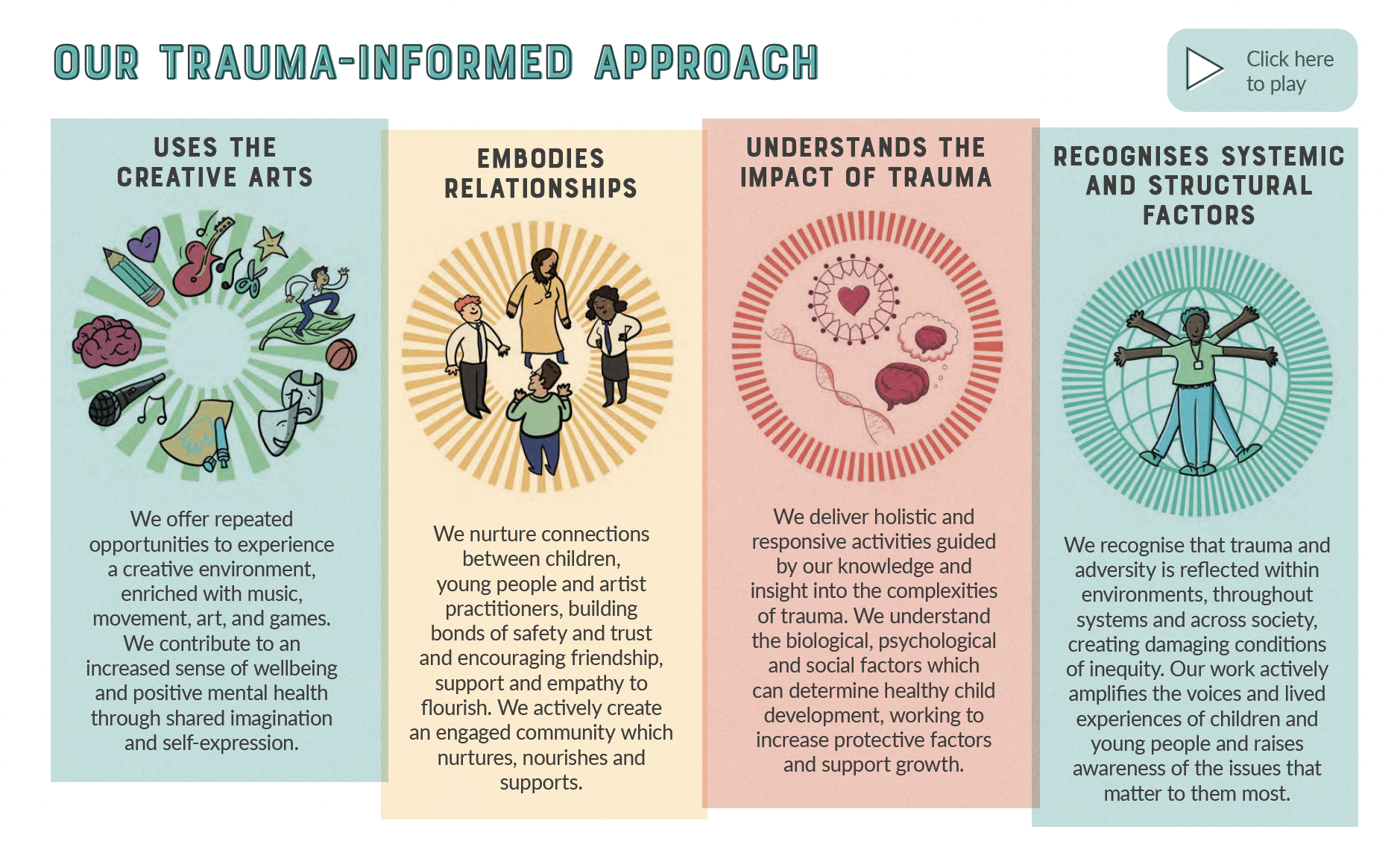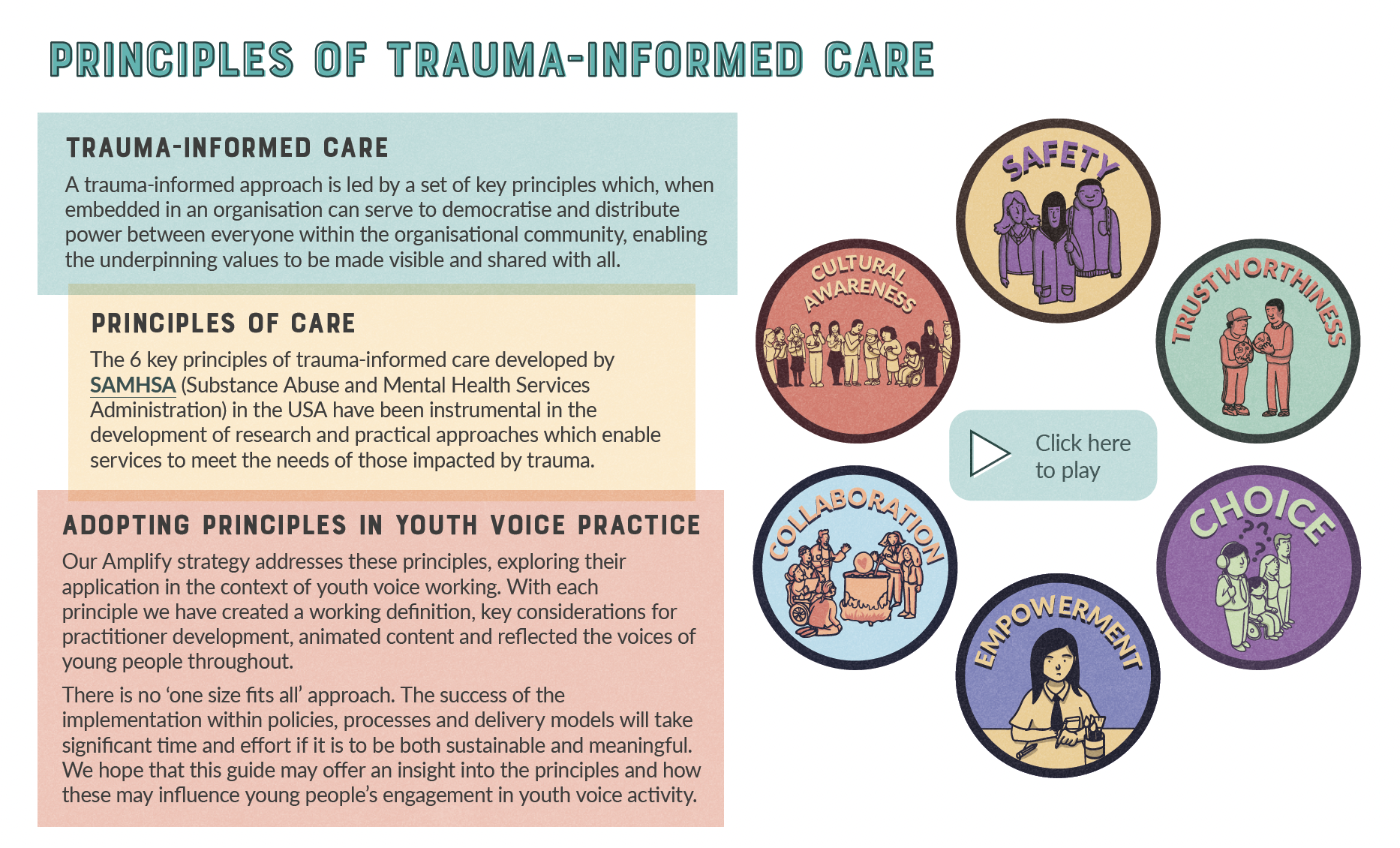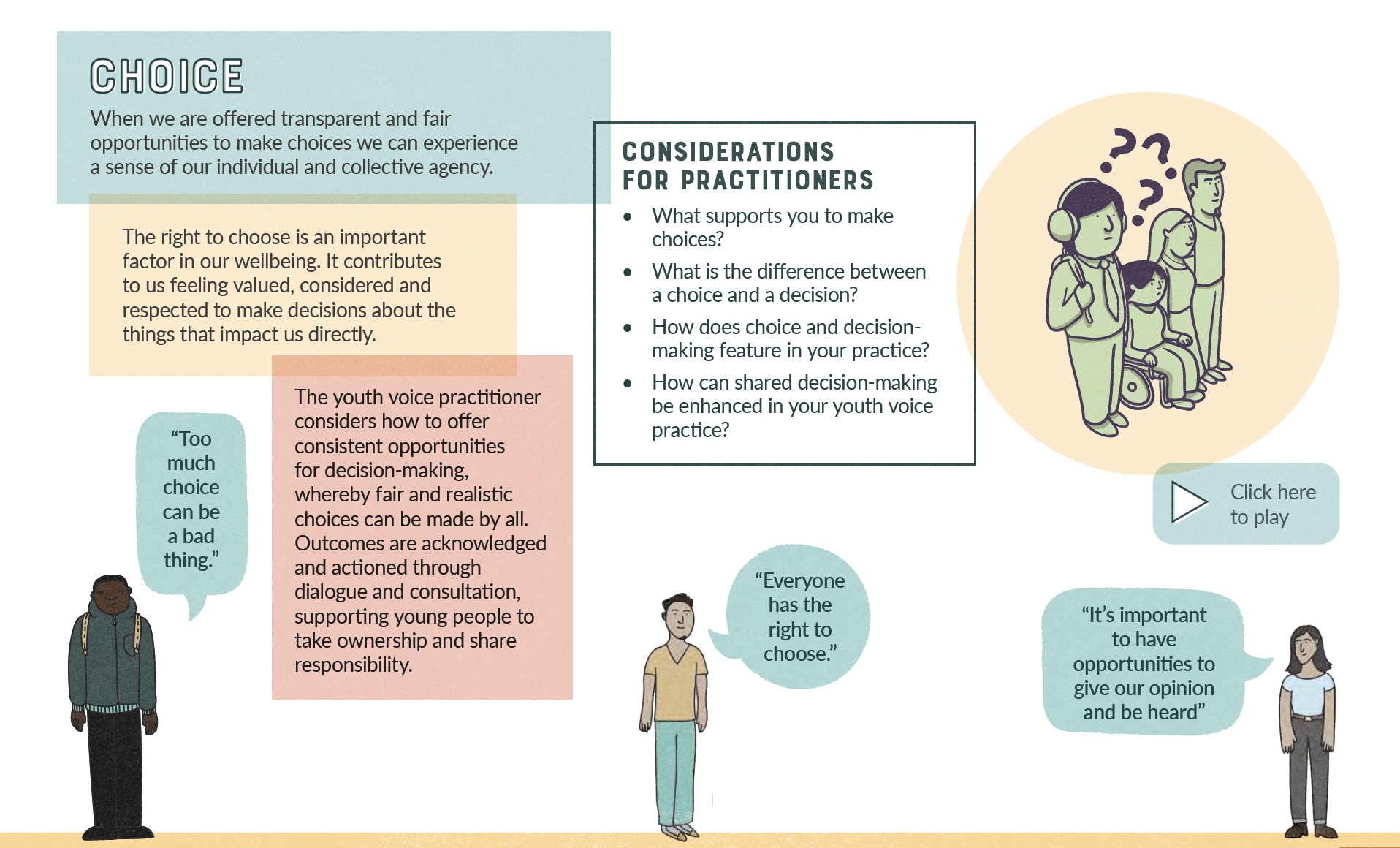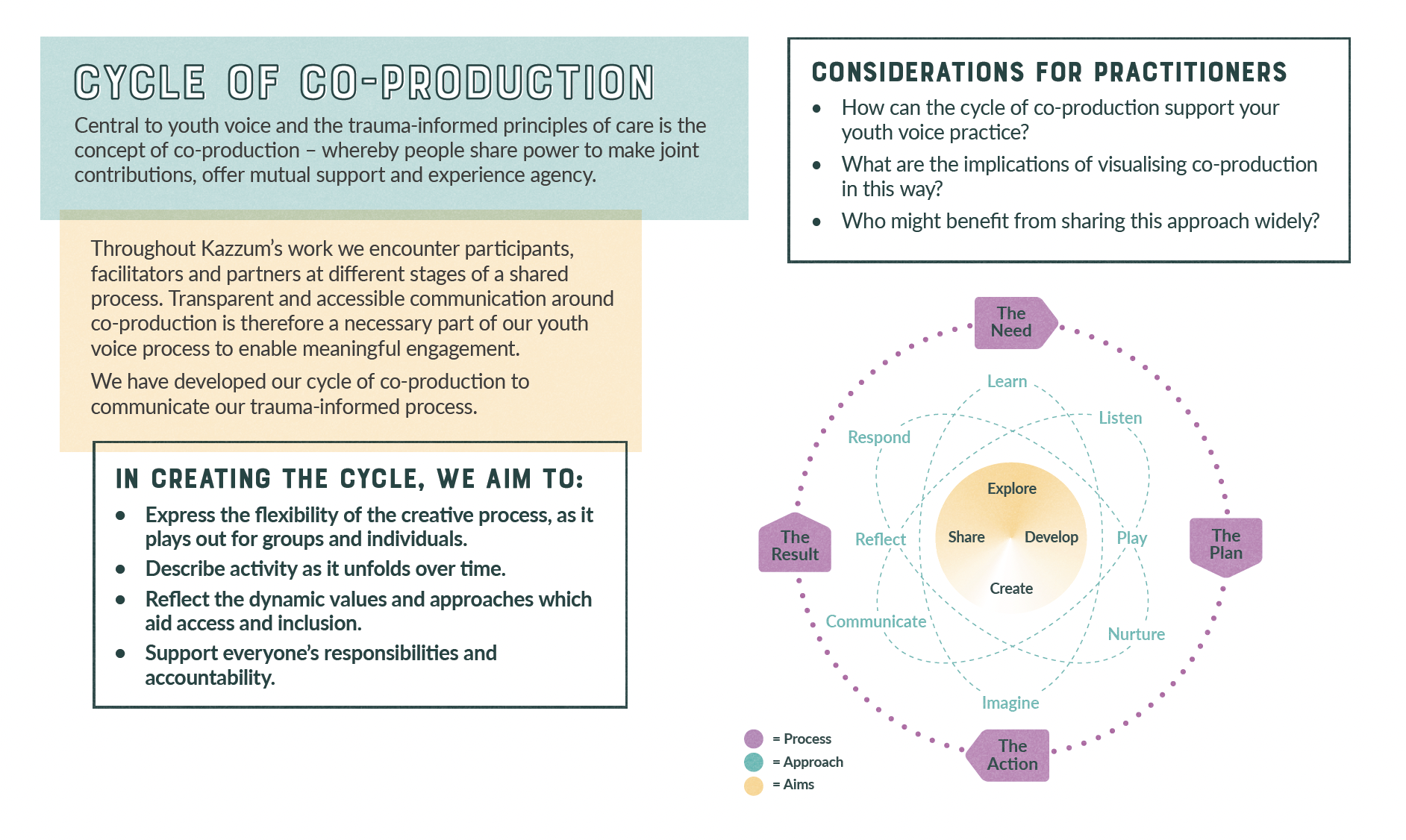Amplify
Across our programmes Kazzum Arts offers opportunities for children and young people to experience creativity and build relationships to others, whilst also highlighting social injustice and supporting young people to advocate for their needs and vision for their worlds.
When working in this way there are many considerations which need to be explored and understood, to ensure that an ethical approach is upheld and maintained at every stage and within every structure of the organisation.
We conceived of ‘Amplify’ to develop and explore the use of the 6 trauma-informed principles of care along with methods of youth voice activity which contribute towards our strategic vision and create opportunities for children and young people to meaningfully influence Kazzum’s future.
For an optimum viewing experience, we recommend downloading the guide and opening it outside of your browser.
What will you find in this guide?
An exploration of youth voice
A grounding in the impact of trauma on children and young people
Insight on the 6 trauma-informed principles of care
Thoughts and opinions of young people
Practice tips for facilitators
A cycle of co-production as a model of trauma-informed creative process
What is Youth Voice?
Youth voice is widely interpreted as the process of seeing, hearing and valuing the diverse and unique perspectives of children and young people.
When we honour the distinct lived experiences of children and young people and offer spaces for the sharing of opinions, beliefs, knowledge and skills, we may be able to amplify their concerns, build their potential and support future generations.
The 6 Trauma-Informed Principles of Care
A trauma-informed approach is led by a set of key principles which, when embedded in an organisation can serve to democratise and distribute power between everyone within the organisational community, enabling the underpinning values to be made visible and shared with all.
The 6 key principles of trauma-informed care developed by SAMHSA (Substance Abuse and Mental Health Services Administration) in the USA have been instrumental in the development of research and practical approaches which enable services to meet the needs of those impacted by trauma.
To understand each principle in more depth, click on the icons below to view a short animation about each one.
Our sense of physical, psychological and social safety is completely unique, based upon our individual life experiences. What feels safe to you may not feel safe to others.
When we feel empowered, we recognise our strengths, which can support us to have agency in our lives.
Trust is created through mutual respect and connection. Relationships which offer commitment, transparency and honesty support trust to flourish.
When we collaborate, we share power and responsibility, supporting everyone to contribute and feel valued.











